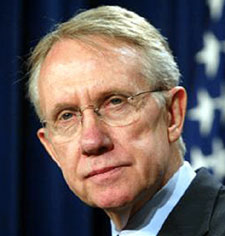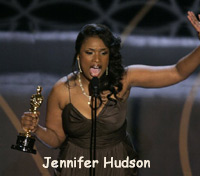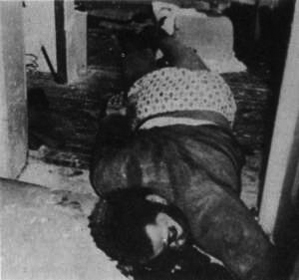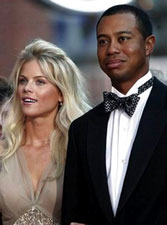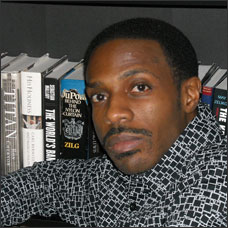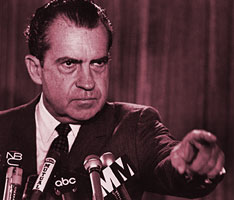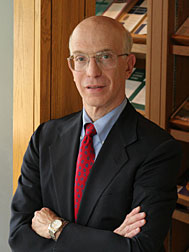Harry Reid, Michael Steele, Negro Dialect & Political Grandstanding
by Davey D
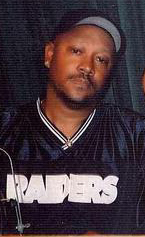 By now everyone has heard about the racial firestorm that has brewed because of some remarks attributed to Senate majority leader Harry Reid in a new book called Game Change. They were made in a private conversation during the 2008 campaign where Reid noted that then Senator Obama might be successful because he was light-skin and didn’t speak with a ‘Negro Dialect’. Obama in typical fashion avoided the mess that can come when discussing race by quickly accepting Reid’s apology, downplaying the remarks and announcing ‘the book is closed’ on the subject.
By now everyone has heard about the racial firestorm that has brewed because of some remarks attributed to Senate majority leader Harry Reid in a new book called Game Change. They were made in a private conversation during the 2008 campaign where Reid noted that then Senator Obama might be successful because he was light-skin and didn’t speak with a ‘Negro Dialect’. Obama in typical fashion avoided the mess that can come when discussing race by quickly accepting Reid’s apology, downplaying the remarks and announcing ‘the book is closed’ on the subject.
Of course Obama’s Republican counterparts seeing that Reid is in a tight re-election race have been trying their best to blow this issue up. The party of Ronald Reagan who supported South African Apartheid, the party of John McCain who said ‘No to a Martin Luther King holiday are suddenly getting all Jesse Jackson-like and riding hard for all those who have been on the receiving end of racial insults and oppression.. Thank you Republican Party-I guess…Not! LOL
Reid’s remarks have been the lead story on every news channel with news directors feverishly pouring through their rolodexes, seeking to get a Black pundit, seemingly any Black pundit to come to a studio where they would normally never see the light of day except during Black history month. Here they’re asked to wax poetic about Reid’s remarks. Some of these outlets have gone so far as to have two or three Black folks on at the same time thus violating the unwritten ‘one-Black-on-set-at-a-time’ rule.

It was good to Black scholars like Marc Lamont Hill weighin in on Harry Reid's remarks, but it would be good to see him and others weighin in on Sunday morning talk shows
To me I was more offended seeing a Professor Tricia Rose, Professor Marc Lamont Hill, BET’s Jeff Johnson and the dozen of other Black faces invited to discuss an old white man using the word ‘Negro’ versus seeing them invited on a regular basis to discuss a variety of other topics that have arguably more impact. I would’ve like to have seen some of those Black voices on the Sunday morning talk shows earlier this year dragging Harry Reid’s ass through the coals around the Healthcare debate when single payer and later public option got snatched off the table. To me the insult was seeing Black intelligence limited to just this topic whereas I might see a dimwit like Ann Coulter invited to weigh in on everything from the War in Afghanistan to what Chris Brown did to Rihanna.
I suppose I shouldn’t blame Harry Reid for that lack of Black visibility on these news outlets, but I will. As the Senate majority leader, I want him pushing for legislation that de-consolidates media and makes it more accessible to the wide array of voices and perspectives in the community. I want him to be leading the charge to undue the damage he helped create when he voted Yes for the infamous 1996 Telecommunications Bill.
Reframe the Debate and Hold Reid Accountable
In any case, while this Harry Reid saga runs its course, I think its important that folks push the envelop a bit and reframe the debate away from the narratives seemingly designed to fit the agendas of media outlets, disingenuous politicians or media darlings trying to blow up their names. I wish people who went on these shows were more aggressive in dismissing the Harry Reid vs Trent Lott angle which has resulted in wasteful discussions about who was more offensive and whether or not double standards are at play. That discussion is a trap.

Comparing Harry Reid to Trent Lott is a trap. It only serves the purpose of media outlets looking for conflict and GOP folks trying to stay in the news cycle
The thing we needed to be focused on was the rationale behind Harry Reid‘s remarks and his political relationship to an African-American community that votes to the tune of 96% for the Democrat political party that he leads in the Senate. Our discussion needed to be centered on us evaluating whether or not one of the most powerful lawmakers in the country was setting policy that met the needs and wants of our community.
What caught most people’s attention about Reid’s remarks was him using the phrase Negro Dialect. It was used in a private conversation and it raised eyebrows because as far as most of us know Senator Reid has never publicly called Obama a ‘Negro’ Senator or President. We haven’t heard him call his African American colleagues in Congress, Negroes.. So where did this phrase ‘Negro dialect’ come from? Why did he use such an out of date word? Was his use of the word just a bad habit or was it reflective of old-time thinking filled with whatever baggage and stereotypes that many whites had stuck in their heads back in the 50s and 60s when the use of that word was pervasive?
Sadly too many pundits were falling over themselves making ding dong excuses for Reid. Some were saying he’s elderly and thats how old folks talk. Others were jumping through hoops talking how we have the United Negro College Fund, the NAACP-National Association for the Advancement of Colored People and how the word is used in the 2010 Census therefore it was ok for Reid to go there.
All thats fine and dandy, but last I checked Senator Reid is not a historic 66 year old or 100 year Civil Rights old institution. Last time I interviewed NCAAP head Julian Bond, he didn’t call me Negro and neither had Ben Jealous. I’ve hosted events sponsored by UNCF and no one walked up to me and handed me a script that would would’ve had me addressing our people as ‘Negro’. If these folks stay up to date so can Senate majority leader Harry Reid.
When I first heard of Reid’s remarks the first thing that came to mind was ‘How often does he interact with Black folks on the Capitol Hill’? Cause I’m sure by now someone would’ve checked him. He would’ve had to run into a Maxine Waters, Keith Ellison or someone else who was outspoken who would’ve said; ‘Look Senator, I know your 71 years old, but its 2010 and if my 90 year grandmother from the backwoods of Mississsippi ain’t using the word ‘Negro’ therefore you too Senator Reid can stop using it ‘.
Now unless someone is covering for him, we haven’t heard that such conversation took place. Hence that makes me think, that Senator Reid knows all about speaking multiple dialects? I guess during the day when he’s in in the Senate chambers, he has a distinguished ‘US Senator-dialect’ by night when he’s kicking it in private he loosens up a bit and becomes more Archie Bunkerish with his language?
So again, just to make sure…since Senator Reid used Archie Bunker type language then our primary concern should be examining his voting record to make sure the Senator’s not pushing Archie Bunker type policies. His slip up gave us an extra excuse to hold him politically accountable.
For example, earlier this year Senator Reid voted to prohibit funding for ACORN, an organization that played a key role in helping get President Obama elected. Was Reid’s vote a calculated political decision or did he come across one too many folks from that organization who he felt spoke with a ‘Negro dialect’ thus getting him to draw some far gone conclusions that ‘Negroes can’t be trusted to do things right’ so hence no funding?
2 or 3 years ago Reid voted to make English the official language for the country. What was going on in his head? Was there no room for Negro dialects? Did he want people to speak only ‘good ole American English’ thus inspiring to cast a vote to make sure?
Just like his political enemies we need to be looking at his voting record and making sure his private conversations of insensitive language was used is not matched by his votes and the agenda he sets for the Senate. You can peep his voting record here: http://www.votesmart.org/voting_category.php?can_id=53320&category=13
Dealing with Republican Hypocrisy
Moving beyond Reid, one needs to look closely at the how the Republicans are handling this. I found it funny to see RNC chair Michael Steele express his supposed outrage for Reid’s remarks when he himself was chin checked by disgruntled members of his own party who felt like he was tarnishing the Republican brand by going on televison talk shows trying to be hip by using Hip Hop jargon which isn’t too far removed from what some might call Negro/Black dialect.

RNC Chair Michael Steele is gonna have a Jesse Jackson moment, he needs to tell Rush Limbaugh to stop playing the Barack the Magic Negro song
Steele said he was trying to make the party more attractive and more Hip Hop like. That whole thing got shut down with the quickness. If you recall, Steele got a verbal ass whupping from radio talk show host Rush Limbaugh who was annoyed and later outraged by Steele’s behavior. It all reached a boiling point when Steele went on the now defunct DL Hugley show which aired on CNN. Sitting between Hughley and Public Enemy frontman Chuck D, Steele got jammed up about why he would hang with a political party that had leaders like Rush Limbaugh who at the time was underfire for saying he ‘wanted President Obama to fail’. Those remarks were coming at the heels of Limbaugh enraging African Americans by repeatdly playing a song during Obama’s campaign called Barack the Magic Negro.
Steele tried to laugh it off, talk a little hip hop slang and assure critics that Limbaugh was ‘just an entertainer’. When Limbaugh heard Steele tried to play him, he went off and smashed on Steele in the tirade of tirades. Limbaugh took to the airwaves and publicly reminded Steele he had 20-30 million listeners and that if he doesn’t start showing some loyalty to the party he might discover that conservative will not wanna talk to him when he came calling. Limbaugh told Steele that he needed to stop going on TV and start raising money for the RNC. It was a brutal tongue lashing, that resulted in Steele apologizing to Limbaugh and being a lap dog ever since..
We won’t even mention that Steele didn’t have the guts to tell Rush to retire when he was playing the Barack the Magic Negro song. He didn’t even tell him to stop. In fact not too many of the outspoken GOP members stepped up and expressed outrage for racial insensitivity expressed by someone who claimed to be advocating for them.
Just to show you how meeley mouth Steele and his people are let’s see the lack of reaction in April 2009, one month after he got the verbal beatdown by Rush Limbaugh. In the great state of Texas, during a televised session on voter protection fellow GOP party member state rep Betty Brown said Asian-Americans need to come up with more accessible names.
She said;“Rather than everyone here having to learn Chinese — I understand it’s a rather difficult language — do you think that it would behoove you and your citizens to adopt a name that we could deal with more readily here?”
Brown went further when she told Chinese-American community organizer Ramey Ko, “Can’t you see that this is something that would make it a lot easier for you and the people who are poll workers if you could adopt a name just for identification purposes that’s easier for Americans to deal with?”
Here’s the video of that incident…
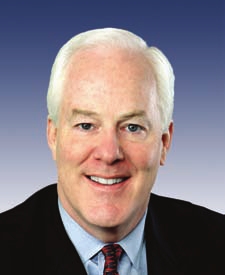
Perhaps Senator John Coryn should clean up his own backyard and ask Texas State Rep Betty Brown to resign before stepping to Harry Reid
Like I said Steele was nowhere to be seen. He wasn’t on TV calling for Brown’s retirement. And not to make this a partisan issue but facts are facts, the Democrats in the Texas House asked only for an apology. They did not ask for her to resign. To this day you don’t hear too many Republicans talk about this infamous incident. They try to downplay it. But I guess we’ll have to bring this up now that Texas senator John Cornyn went and opened his big mouth by demanding that Harry Reid resign.
This is the same Senator Coryn who resides in a state that is 30% Latino voted ‘No’ to confirm President Obama’s Supreme Court pick, Judge Sonia Satamayor. Coryn was all up in arms, being pompous and showing outrage at remarks Justice Sonia Satamayor made that he considered racially insensitive. I guess I can understand that if he was consistent. He said ‘No’ to Sotomayor, but not once did he ask representaive Betty Brown to step down… Coryn has no creditibility thus nothing more needs to be said. I guess Steele, Coryn and that whole cabal are only willing to do the Jesse Jackson thing to a point.
On a somewhat lighter note one has to wonder if Senator Reid expressed concern about the use of ‘Negro Dialect’ when Senator Hillary Clinton broke it out during her campaign. In the same vein did Michael Steele, Senator Coryn or any of their ilk ask Hillary to step down and resign for her ‘Negro speaking moments’? This of course raises the question to which the answer should be more than obvious, ‘Is what we seen expressed over this past week, righteous indignation, a genuine response to racial insensitivity or political opportunity’? As they say in the hood It’s all politics-It’s all politricks.
